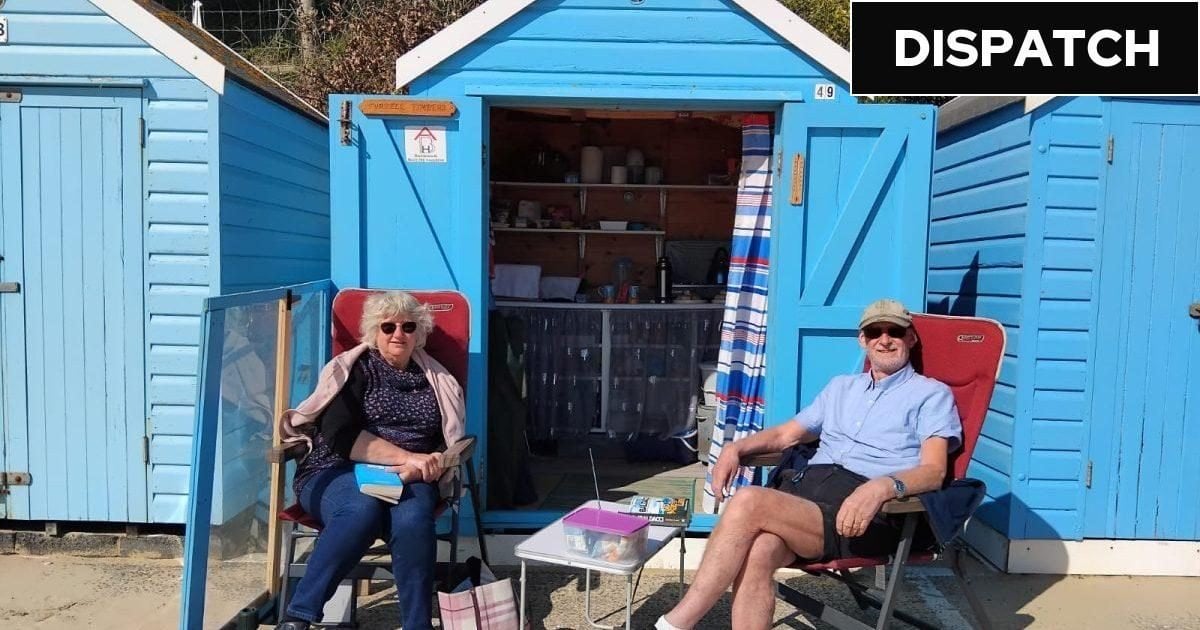
Inside the seaside town where thousands face paying hundreds more in income tax
Inside the seaside town where thousands face paying hundreds more in income tax
Posted by theipaper


Inside the seaside town where thousands face paying hundreds more in income tax
Inside the seaside town where thousands face paying hundreds more in income tax
Posted by theipaper
3 comments
Beth a single parent, is feeling the pinch, with rent costing £1,200 per month and without [wage growth](https://inews.co.uk/topic/wages?srsltid=AfmBOoo31MCHWVjhJAWWnHBVJP-Kw-JzIryCVXRFXDw_4e6hkITEJG_C&ico=in-line_link) keeping up.
“They’ll put minimum wage up, but that’s hand in hand with a tax rise,” the 45-year-old told *The i Paper*.
She said Bournemouth is full of people struggling to make ends meet, with “brokenness everywhere”.
The town ranks in the bottom 10 cities with the [lowest wages in the UK](https://www.centreforcities.org/press/workers-in-london-earn-in-eight-months-what-workers-in-burnley-earn-in-a-year-new-analysis-of-regional-pay-divides/), with an average salary of £31,000 per year – London ranks at the top with £49,000.
Beth, who works at a Christian centre, said house prices and rents just keep “going up and up and up”, outpricing people who are no longer able to live there.
“The wages don’t increase like the cost of housing,” she said, adding that the tiny two-bedroom maisonette that she shares with her son costs £1,200 a month.
This comes as the Treasury is set to rake in an extra £7bn per year in [income tax](https://inews.co.uk/inews-lifestyle/money/pensions-and-retirement/state-pensioners-to-pay-over-300-in-income-tax-by-2027-3608629?srsltid=AfmBOopdG_ToUXbxq-fv4G6jaL0NI7hwnQ3eSX4fObmPYIL0Z4rlB_wP&ico=in-line_link) than previously forecast, thanks to frozen thresholds and wage growth, new analysis shows.
The Office for Budget Responsibility (OBR) on Wednesday said income tax receipts – excluding self-assessments – were on track to hit £322bn by 2029-30, up from the £313.8bn previously forecast in October.
This would equate to an additional £6.9bn per year on average until the end of this Parliament.
Analysis [shows that frozen tax bands](https://www.ii.co.uk/analysis-commentary/stealth-tax-blow-workers-and-how-beat-it-ii534814) and higher inflation will cost workers thousands in additional income tax over the next three years.
High earners on a £100,000 salary will pay £2,445 of extra tax each year until April 2028, compared to £2,317 under the previous forecast, according to calculations by investment platform, Interactive Investor.
Middle earners on £35,000 are set to pay £845 more, up from £801, while someone on a £20,000 salary would pay £282 in additional tax compared to £267 previously.
Rob, 51, also stressed people are struggling, with wage growth stalling and locals getting priced out of rentals.
“People have less money to go around so they’re struggling,” he said. “I’ve seen people bid for rents and being priced out. Those things are really difficult to see.”
He said he was in London recently and was shocked to see that the coffee prices were cheaper in the capital, where average wages are higher.
The freeze in basic rate income tax threshold started in 2022. I’m glad there is some attention paid to this now, and it definitely is a stealth ‘tax’, but this has been the case for some time and is set to remain until 2028(?!).
I saw an article the other day from some right wing rag saying that Labour were taxing pensioners more (because of fiscal drag), when in fact this has affected lots of people for nearly 3 years already.
“My wages went up so while I take home more I pay more tax” is certainly an interesting take.
I get fiscal drag is essentially a stealth tax increase but the people we’re talking about here aren’t the ones getting dragged into the 40% bracket or losing their allowance because of earning more than £100k, that’s just a really wired jump.
The fact rent went up and some woman never realised she’d have to work longer to get her pension because eof equality are nothing to do with tax, so entirely seperate issues to the headline.
Comments are closed.